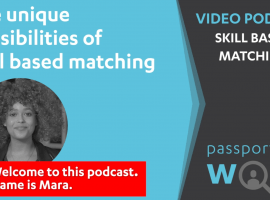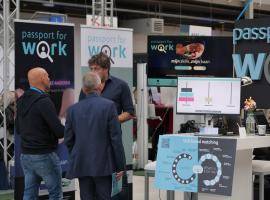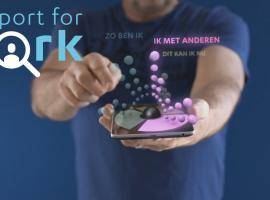In the focus group, we analyzed several dimensions of the Passport for Work platform:
1: The role of the language barrier
In its current form, Passport for Work is in Dutch. While the ambition is to introduce additional languages, this is contingent on the project's future beyond the formal project period. As part of the accompanying decision making process, this focus group was important to establish whether this is a critical feature for future upgrades. In the focus group, Google Translate was used (despite its inherent margin of error) to gauge whether participants (whose main language were mostly Arabic and Farsi) were both able to understand the questions asked durign the assessment, and also to infer whether the questions made sense to them from a professional standpoint. As a back-up, translators were present and translations had been prepared on paper. However, in the session it became apparent both of these backups were not needed, and that Google Translate was acceptable for both answering and understanding the different, text-based assessment rounds. However, the situational judgement tests (comprising performed interactions between Dutch actors) and the explanations of the digital job coach "Guus" both could not be translated. While these are optional for completing the skillprint, for future iterations either subtitles or a voice-over need to be implemented for the language barrier to be eliminated completely.
2: The anglo-saxon nature of the skills assessment
Passport for Work is based on the US skills taxonomy O*NET, which is based on an anglo-saxon perspective on occupations. In the focus group, it was investigated whether this caused issues with regards to the different cultural backgrounds of the participants. However, participants did not report an issue with this, and, on the contrary, indicated that they were positive about being provided with requirements appropriate with the Dutch labour market context, which is entirely new for them.
3: Reducing the barriers to employment
Finding a job is challenging for refugees for a variety of reasons. Inexperience of employers with hiring refugees, the perceived complexity thereof and the limited contact points are part of the explanation. To counter this, job markets (Vacaturecafes) are frequently organized in the Eindhoven municipality which job seekers (among which refugees) and employers can meet on an informal basis. By bringing their Passport for Work skillprint, the barrier to opening up a job-related conversation is reduced. As such, the combination of the online assessment with physical employer events (especially for this demographic prior to the addition of new languages) is one worth maintaining into the future.

























